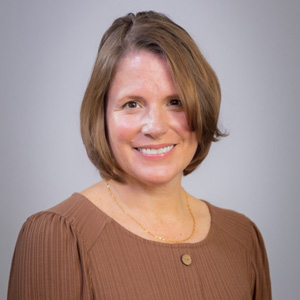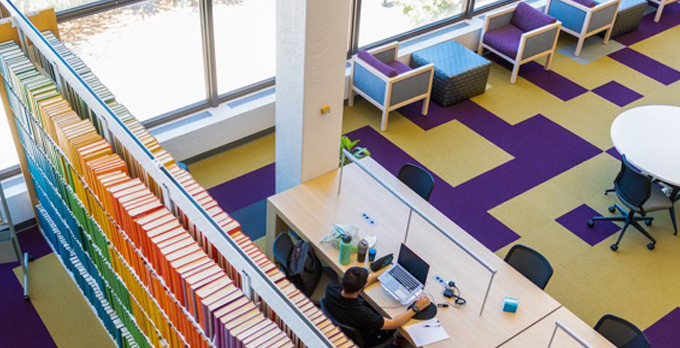In the ever-evolving landscape of information management and library sciences, it is imperative to celebrate and acknowledge individuals who exhibit exceptional leadership and dedication to their field. Sally Bowler-Hill, MA, MSIS, PMP, the Manager of Administrative Operations at the University of New Mexico Health Sciences Library and Informatics Center (UNM HSLIC), stands out as one such individual. Her recent achievement of earning a spot in the Association of Research Libraries (ARL) 2023 Leadership Fellows Program is a testament to her commitment and expertise in the realm of library and information services.
“I feel really fortunate,” says Bowler-Hill. “This is an outstanding opportunity to get an in-depth perspective, working closely with peers from other institutions that not everybody gets to have.”
The ARL Leadership Fellows Program, established to cultivate future leaders in research libraries, is a prestigious initiative that identifies and nurtures individuals with the potential to make significant contributions to the profession. Bowler-Hill's selection for this program reflects not only her individual accomplishments but also the acknowledgment of her potential to shape the future of information management.
Bowler-Hill has been with UNM since 2001, and with HSLIC in various capacities since 2003, where she is instrumental in enhancing the library's efficiency and effectiveness and plays a pivotal role in supporting the academic and research community at UNM. Bowler-Hill was pointed toward the fellowship opportunity by a colleague and felt drawn to it for the potential networking opportunities.
“Health sciences librarians are a very specialized group, and I wanted to connect with a broader group of folks who work in academic libraries in general.”
The ARL Leadership Fellows Program is structured to provide fellows with exposure to various aspects of academic librarianship, including organizational leadership, management practices, and the future of research libraries. With a rich academic background, Bowler-Hill is no stranger to expanding her knowledge. She holds a Master's in Information Science (MSIS) and a Master's in Art Education (MA), as well as a Project Management Professional certification.
“I am thrilled that Sally received this fellowship,” says Melissa L. Rethlefsen, MSLS, AHIP, Executive Director of HSLIC. “She is the first HSLIC staff member to be awarded this honor, and it’s an excellent opportunity for her to learn and grow as a library leader. I know that HSLIC will benefit from her participation, as will the rest of her fellowship cohort.”
One of the key components of the ARL Leadership Fellows Program is the mentorship aspect, where each fellow is paired with a mentor from the ARL community. This mentorship provides a unique opportunity for fellows to receive guidance, advice, and valuable insights from seasoned professionals who have successfully navigated the challenges and opportunities in the field. The fellowship also provides an opportunity to meet with other emerging and established library leaders and to learn and grow professionally. It’s also a chance to see how other higher education libraries operate, and the differences are more significant than one might expect.
“When you’ve seen one library, you’ve seen one library,” says Bowler-Hill. “As part of the fellowship, we’ll get to see different library organizations, how they work, and the services and offerings they choose to feature.”
Bowler-Hill's inclusion in the Association of Research Libraries 2023 Leadership Fellows Program is a well-deserved recognition of her dedication, expertise, and potential to lead in the dynamic and evolving field of library and information sciences, particularly for research libraries and the research community. A research library – which is typically rooted in a larger organization – tends to reflect the organization’s values and operations.
“Witnessing how other libraries work exposes you to other organizational cultures, and how libraries have grown within and adapted to the needs of their respective parent organizations.”
Which means the most popular services in one library setting might not be a good fit for another library setting, because the needs of the people are different. At the same time, learning what other libraries are doing may result in bringing new services and ideas back to your own library that resonate with the community.

This is an outstanding opportunity to get an in-depth perspective, working closely with peers from other institutions that not everybody gets to have.
